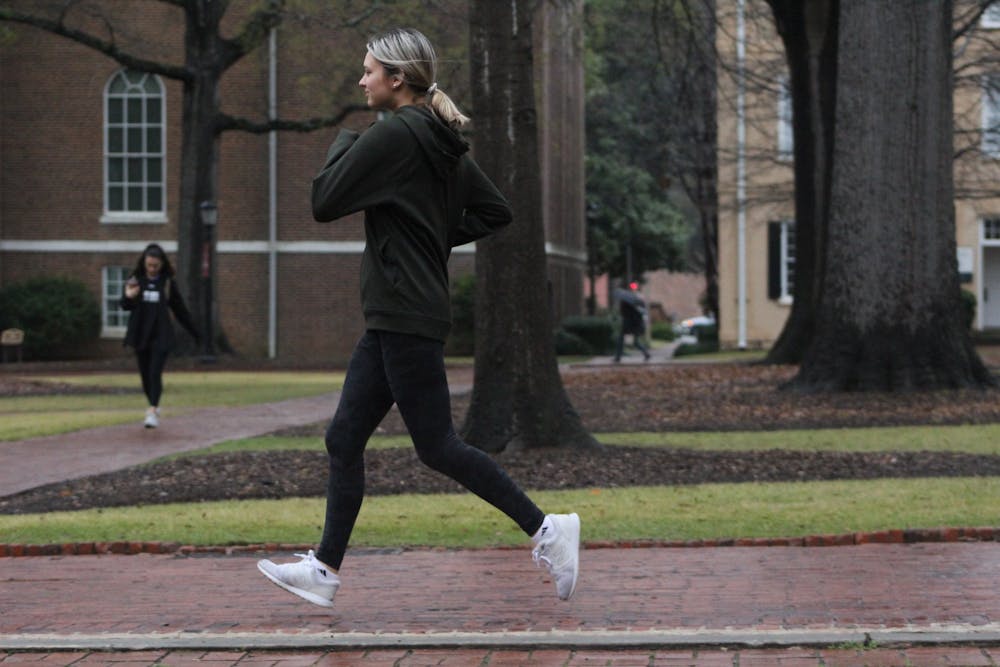If college students spent more time in nature, they could lead healthier lifestyles with less anxiety.
It’s midterms week on campuses everywhere, and you know what that means – you can basically smell the stress in the air, like smoke blowing from the ears of every student headed back to their residence halls from the library at 2 a.m. It’s certainly a tense couple of days for college students, and that tension isn’t eased by the amount of time that needs to be spent studying, normally in front of a computer.
Educause, a nonprofit association focused on improving higher education, found in a study that the typical college student spends one to four hours daily doing homework or research online. This statistic is alarming when one considers the study also found the typical college student spends one to two hours on social media and one to two hours streaming video – essentially, the average college student spends up to a third of their day in front of a screen.
All this screen time happens indoors and it’s widely known that being holed up all day isn’t the best for the mind, body or soul. The ever-increasing use of technology is something that might seem unavoidable in today’s world, but if you have a spare moment to turn off the screens, do it. Better yet, get out of the residence hall for a while and see what the great outdoors have to offer.
Spending more time outside would help alleviate the perpetual stress many college students experience. As reported by ScienceDaily, new research from a team at the University of East Anglia supports claims that being close to nature has varied and important health benefits.
“People living closer to nature also had reduced diastolic blood pressure, heart rate and stress. In fact, one of the really interesting things we found is that exposure to greenspace significantly reduces people's levels of salivary cortisol -- a physiological marker of stress,” the research’s lead author, Caoimhe Twohig-Bennett, said in an interview with ScienceDaily.
In other words, Mother Nature has a way of calming us down. College students desperately need to de-stress, and spending a few hours getting some fresh air could be just the thing they need.
Aside from the mental benefits, communing with nature offers an array of physiological benefits. Twohig-Bennett said spending time in green space “reduces the risk of type II diabetes, cardiovascular disease, premature death, and preterm birth, and increases sleep duration.” Being physically healthy is, of course, essential to success in college, and the research shows that being outside is of great help in maintaining physical health. College students, for their own good, should spend more time outside.
The Columbia area has more than a few public parks that students should utilize more frequently. Two that are closest to downtown are the Riverfront Park and Finlay Park. The former offers trails along, and very scenic views of, the Congaree river, perfect for walkers, runners, hikers, bikers and the like. The latter is an urban green space not far from Main Street and USC, meaning that it’s perfect for throwing a frisbee or football around, or for just enjoying some fresh air.
Also quickly accessible for students with cars is Lake Murray, a large, man-made lake that lends itself well to beautiful trails and parks, fishing, boating, watersports and even scuba diving. Just as close is Congaree National Park, a marshland park renowned for its stunning old-growth forests, wildlife, boardwalk trails and kayaking.
It can be hard, especially with the often overwhelming expectations placed upon today’s college students to succeed academically – but if you have a moment for a study break, consider heading outside to experience some of Columbia’s beautiful spring weather. Your mind and your body will thank you.

